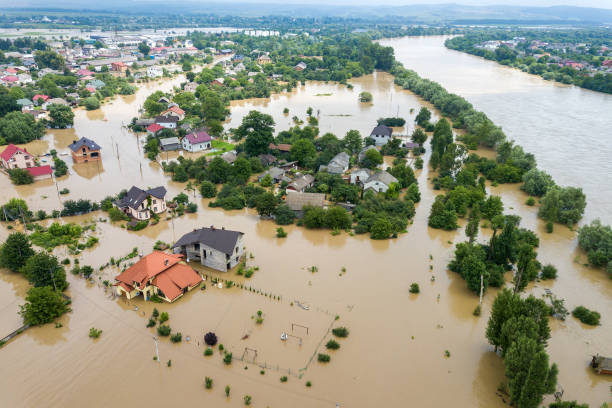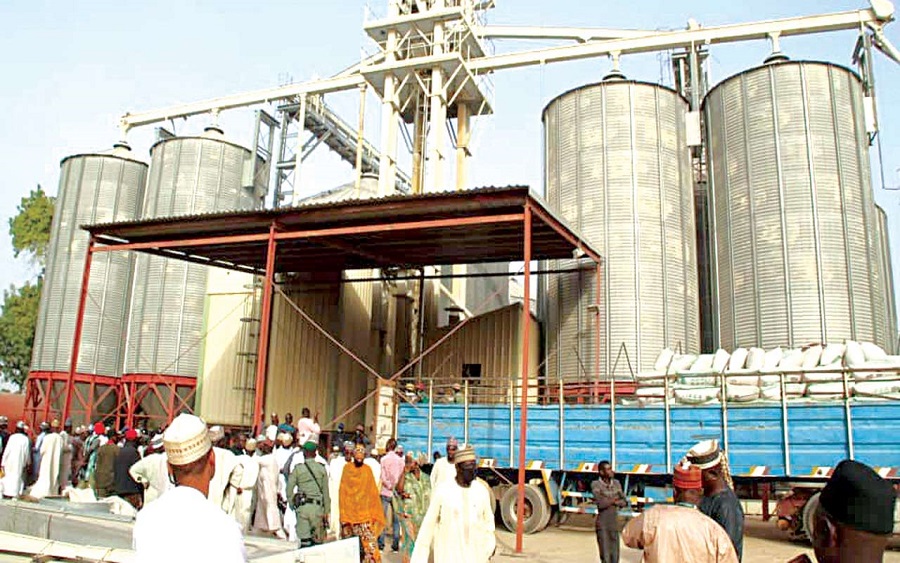Nigeria’s Oil and Gas exports are at risk of declaring force majure due to the high rate of flooding in Rivers, Delta, and Bayelsa states of the Niger Delta region.
Reports indicate most communities in oil and gas producing areas in the Niger delta are currently flooded potentially placing oil and gas facilities at severe risk of shutting down production.
This could negatively impact Nigeria’s crude oil exports which have been bogged down by oil theft controversies. A decline in Nigeria’s export earnings will severely impact government revenues and could worsen the country’s fiscal challenges.
Floods affect oil communities
An oil company staff member who spoke to Nairametrics explained that as of October this year, the most affected communities in Rivers state are Orashi and Omoku.
- According to the OC staff, Omoku is known for its rich oil and gas deposits and the community also supplies natural gas to Nigeria Liquefied Natural Gas (NLNG) Limited, which is already operating at 70% capacity. It is possible that the flooding could also affect output at NLNG.
- In Bayelsa state, another IOC staff member told Nairametrics that in the state, it is not just onshore oil and gas production sites that are at risk due to flooding.
- The IOC staff also cited adverse effects on the Bayelsa state due to other issues like drilling services, which will be on hold until water from the flooding, recedes.
Our sources also indicate service companies that usually come to service equipment on onshore oil and gas production sites can no longer gain access into the state largely due to the fact that roads leading from Delta state and Rivers state are currently cut off due to flooding.
According to our source “It is a ripple effect because if service companies are not able to reach onshore sites to maintain equipment, the equipment could develop faults and if that happens, work will be stalled as production cannot take place.”
Possible scenarios at oil and gas production sites during a flooding
No company would want to operate in a flooded environment, hence expect the production facilities tend to shut down.
- A shutdown could lead to the evacuation of staff and possible shutdown of production facilities.
- Most electrical-driven equipment will have to stop operation if the location is flooded to a high level above the foundation.
- The crew will change normal vehicular movements, because road access will be unavailable in some extreme cases and they might have to evacuate through emergency options, sometimes, with the help of the military.
- Flooded export pumps, and power generation facilities will pose electric hazards and will have to be shut down and the power supply to the facility will be out.
- If the flood is within foundation levels, then the facility can keep running with only critical personnel on board.
- All these would cost a lot to the country in terms of production figures.
Evacuation of work staff
Nairametrics got unconfirmed reports that some oil and gas companies have already begun the evacuation of staff members from some production sites in Imo and Bayelsa states.
- This is also risky because when staff members are evacuated from work sites, it gives vandals the opportunity to steal and vandalize work sites, in search of stealing items that they could sell off in order to make a quick buck.
- This can only happen if no staff member is on-site at the production facility, in cases of extreme flooding.
Currently flooded communities with critical oil and gas facilities
As of October 2022, the Ogba/Egbema/Ndoni communities in the Omoku local government area of Rivers state are flooded and have recorded the destruction of properties as well.
Companies like Shell Petroleum Development Company, Nigerian Agip Oil Company, and TotalEnergies, have facilities in Omoku, thereby placing these facilities at risk with the flooding in the town.
- The Ohaji/Egbema communities in Imo state are also flooded, placing oil and gas facilities owned by Waltersmith Petroman at risk. The onshore gas field project, Assa North Ohaji South, currently being developed by the Nigerian National Petroleum Company (NNPCL), Shell, Nigerian Agip Oil Company, and, Total Exploration and Production Nigeria, could also be at risk as it is located in the same locality.
- Tekena, a resident of the Sagbama community, told Nairametrics that 60% of the Bayelsa state capital, Yenagoa is currently flooded and about 80% of his community, Sagbama is flooded. According to him, most of the oil and gas production facilities in Yenagoa, which are located in freshwater areas, are not really affected by the flooding because their production rate is not high. However, the Oporoma community is flooded, but not at an extreme rate as of October 17.
- Tekena told Nairametrics that many communities in Bayelsa state that produce a lot of oil and gas are located in saltwater areas and those communities do not get flooded. Tekena says oil and gas production is ongoing and uninterrupted in these saltwater communities like Angalabiri, Sangana, Koloama, Ogboinbiri, and Tuon, (from different local government areas) because they go through underground pipelines.
What you should know
President Buhari has said that flooding in Nigeria has been catastrophic, especially in Bayelsa State where more than 700, 000 people in 300 communities and villages have been displaced.
- The Nigerian Government now plans to send a delegation to Cameroon to initiate a bilateral discussion with the Cameroonian authorities on the periodic opening of the Lagdo Dam.














.gif)






